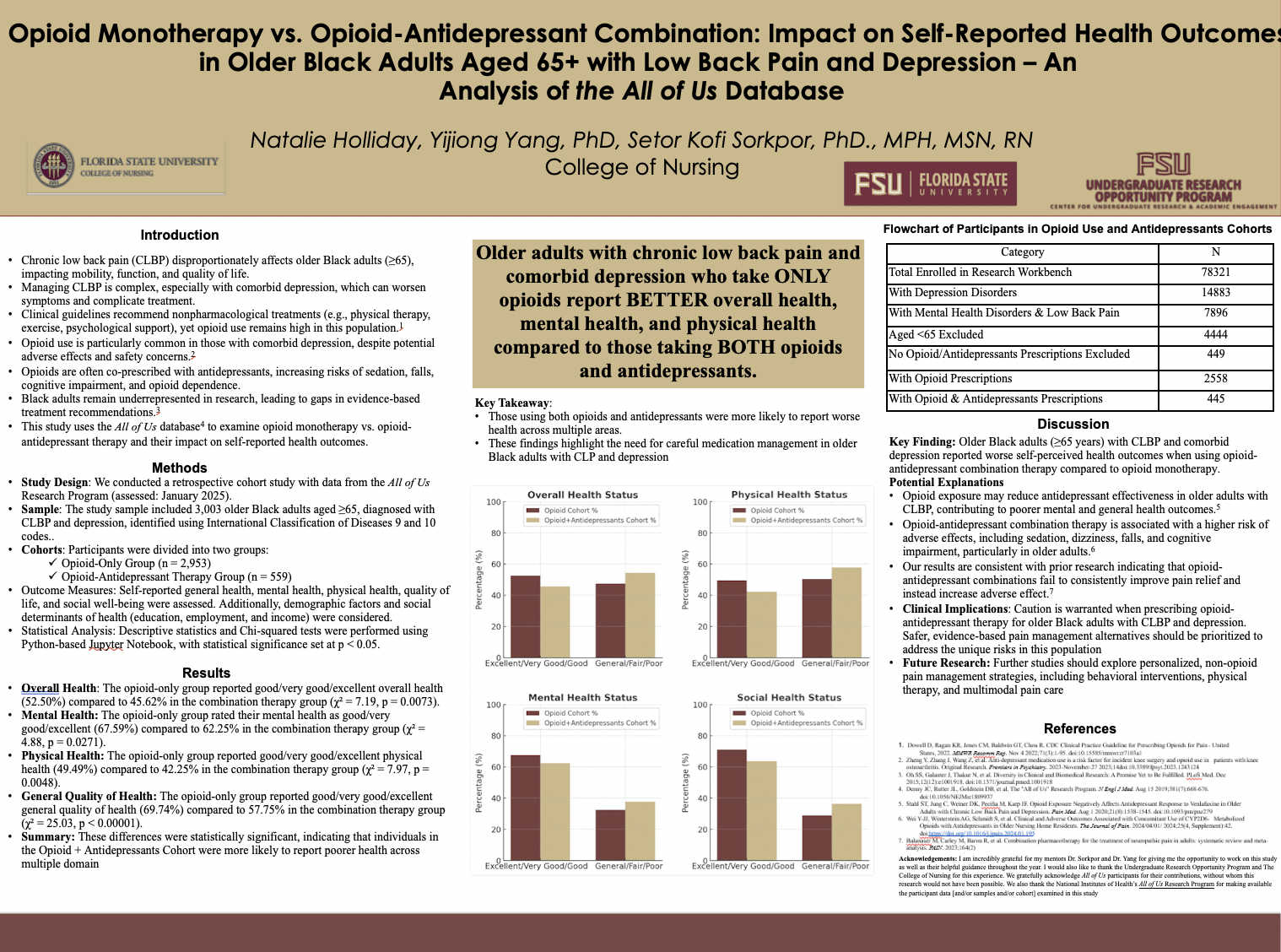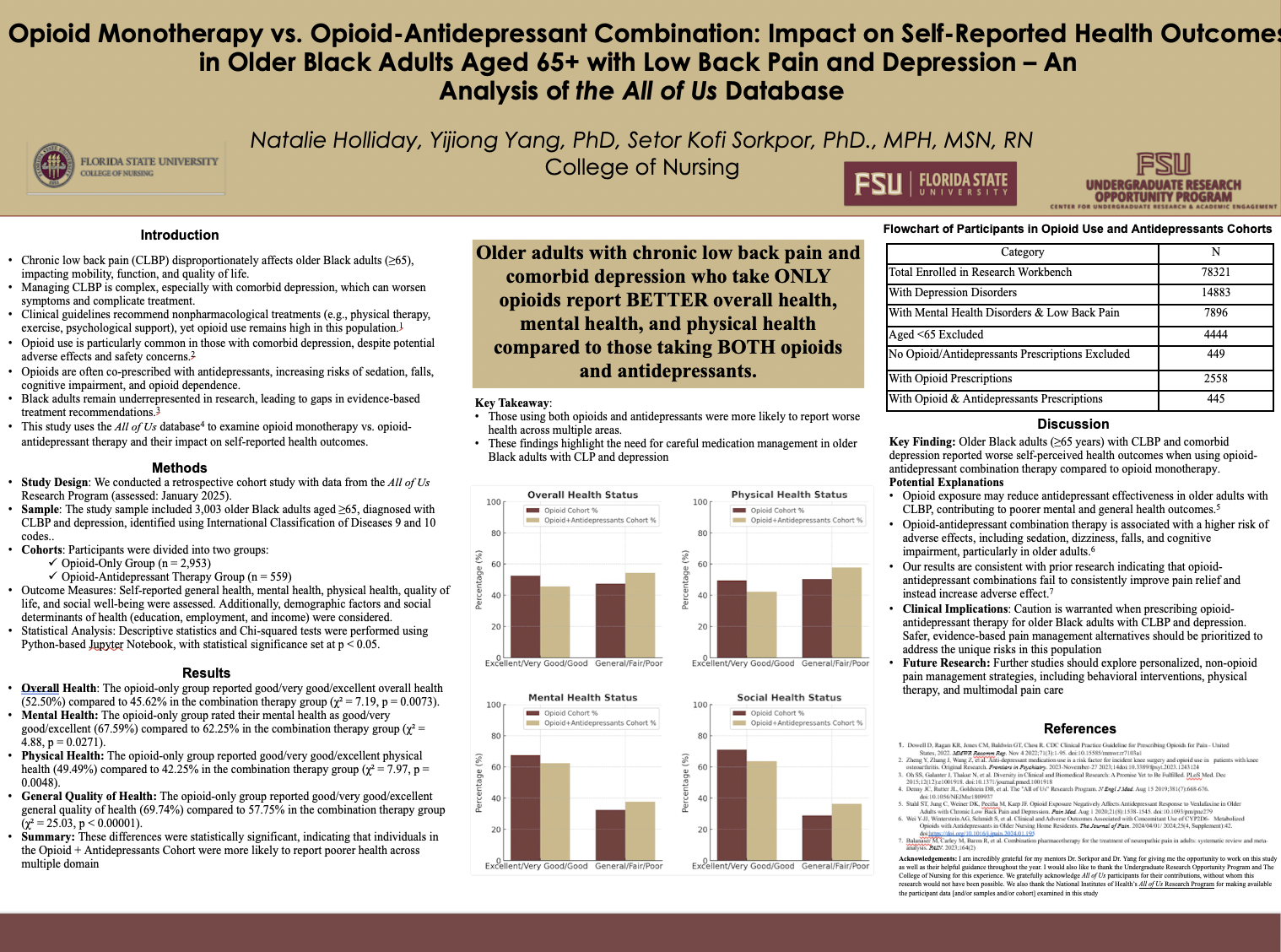Research Symposium
25th annual Undergraduate Research Symposium, April 1, 2025
Natalie Holliday Poster Session 4: 3:00 pm - 4:00 pm/ Poster #164

BIO
My name is Natalie Holliday and I am from Nashville, Tennessee. I am a freshman majoring in Psychology and I have loved my experience participating in the Undergraduate Research Opportunity Program this year. During my time in UROP this year I have worked with Dr. Sorkpor and Dr. Yang in the College of Nursing investigating treatments for Chronic lower back pain. I have learned many valuable skills and gained useful skills during my time working on this research.
pioid Monotherapy vs. Opioid-Antidepressant Combination: Impact on Self-Reported Health Outcomes in Older Black Adults Aged 65+ with Low Back Pain and Depression – An Analysis of the All of Us Database
Authors: Natalie Holliday, Dr. Setor Kofi SorkporStudent Major: Psychology
Mentor: Dr. Setor Kofi Sorkpor
Mentor's Department: College of nursing Mentor's College: Florida State University Co-Presenters:
Abstract
Introduction: Chronic low back pain (CLBP) disproportionately affects older Black adults (≥65), yet they encounter significant barriers to diagnosis and treatment. Although guidelines recommend nonpharmacological interventions as first-line treatment, opioid use remains common, particularly among those with comorbid depression, where it is sometimes combined with antidepressants despite potential risks. This study examines the impact of opioid use alone versus opioid-antidepressant combination therapy on self-reported health outcomes in this population.
Methods: We conducted a secondary analysis using data from the All of Us Research Program (January 2025). The sample included 3,003 older Black adults (≥65) diagnosed with CLBP and depression. Participants were categorized into two cohorts: (1) opioid-only users (n=2,558) and (2) opioid plus antidepressant users (n=445). Descriptive and statistical analyses were conducted using Python on the All of Us Data Workbench.
Results: Preliminary results suggest that opioid-only cohort reported more favorable outcomes than the combination therapy group. A higher percentage of opioid-only users rated their overall (52.50% vs. 45.62%), mental (67.59% vs. 62.25%), physical (49.49% vs. 42.25%), and general quality of health (69.74% vs. 57.75%) as good or better.
Significance: These findings suggest that combined opioid-antidepressant therapy is associated with poorer self-perceived health outcomes compared to opioid monotherapy. Considering current clinical guidelines that favor nonpharmacological treatments and caution against polypharmacy, this combination intervention is not recommended for Black adults >65 with CLBP and depression. Alternative, evidence-based pain management strategies should be prioritized for this vulnerable population.
Keywords: Opioids, antidepressants, backpain, depression

